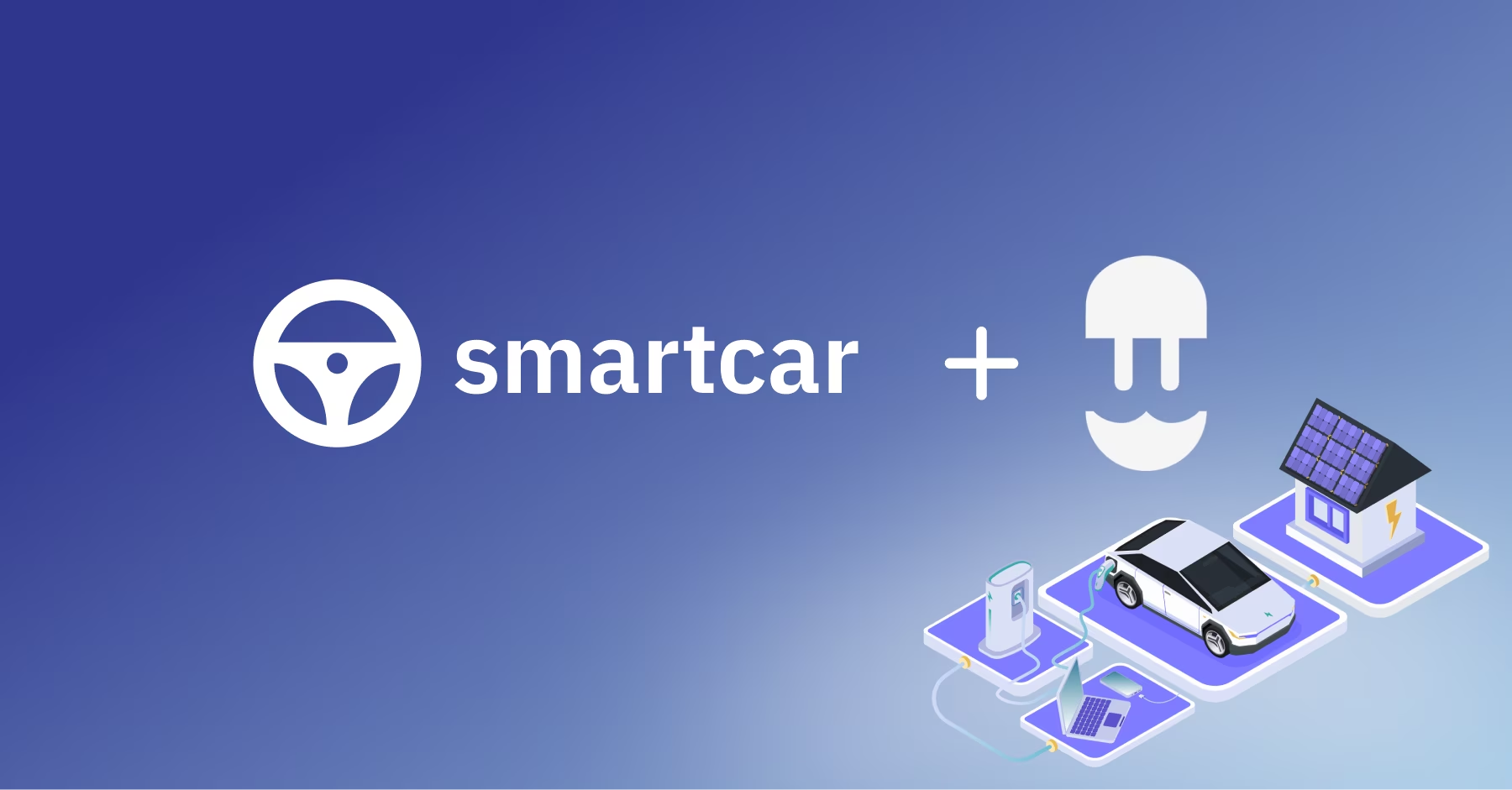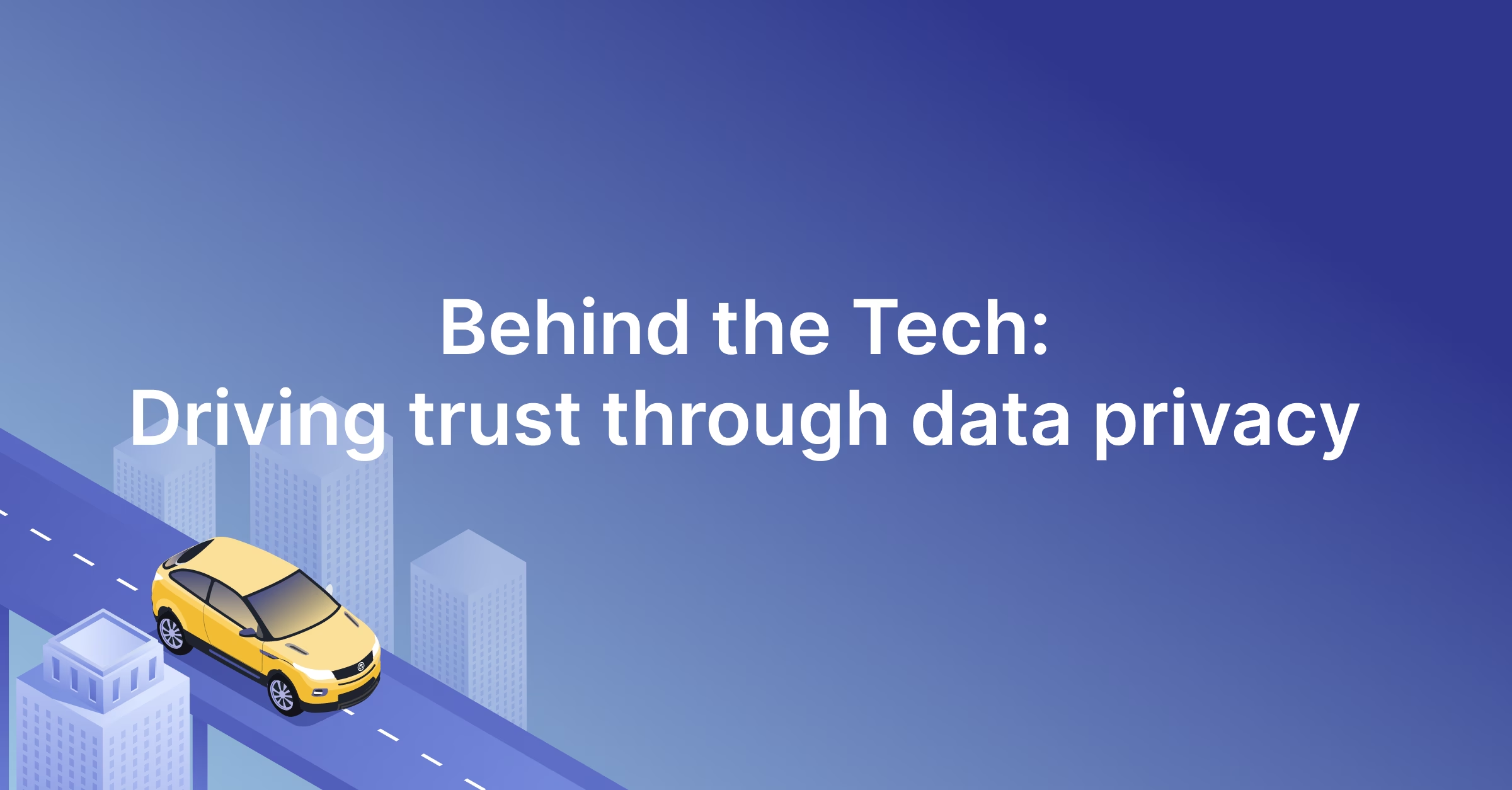What does the potential for connected cars mean for automotive developer shops? Without secure and standardized car database APIs, catching up to the speed and scale of the car app market will be a daunting task.
Although we’re seeing more headlines about big tech bringing the apps we know and love to our cars, the idea of apps for cars goes far beyond repurposing existing services for in-vehicle infotainment systems.
The automotive industry is changing to accommodate more vehicle connectivity, zero-emission targets, and improved infrastructure. For that reason, governments and mobility businesses are looking to unlock new business models and revenue streams through apps powered by vehicle telematics.
But there’s one problem: Building apps for cars is complex and costly, and many organizations don’t have the in-house technical resources to do it themselves.
That’s where automotive developer shops step up to the plate. Let’s explore how developer shops can use a car database API or app templates to empower their clients with secure, reliable, and professional vehicle applications.
Top car data providers for automotive developer shops
Apple CarPlay and Android Auto
Apple CarPlay and Android Auto allow developers to optimize specific categories of applications for a car’s built-in infotainment system so drivers can pull up apps on their car’s dashboard screen. These apps are relatively restricted regarding how much developers can customize UI templates by Apple and Android.
You can develop apps for Apple CarPlay if they serve the purpose of providing drivers with audio entertainment, communication, navigation, parking, food ordering, and EV charging. Android Auto also supports other app categories like video apps and Internet of Things (IoT) solutions to communicate with connected devices like garage doors and home security systems.
Smartcar
Smartcar is a vehicle API platform for connected cars — which are vehicles shipped with built-in embedded telematics or internet connectivity to communicate with IoT devices. The technology allows developers to easily integrate their mobility apps and services with their customers’ vehicles. Developers use Smartcar’s API to integrate with 155 million cars worldwide across more than 30 brands.
Developers can use comprehensive SDKs in different languages and frameworks to integrate their apps with Smartcar’s API. What sets Smartcar apart from other car API providers on this list is that the platform gives apps a pre-built OAuth 2.0 authorization flow that collects consent from drivers and allows the application to retrieve information and send commands to vehicles.

CarMD
CarMD is a car database API that gives developers access to data on a vehicle’s repair and maintenance needs. The API benefits those in the automotive aftermarket industry, parts manufacturers, distributors, and more. If you’re building an app for vehicle repairs, you can use the CarMD API to give drivers and fleet operators diagnostic reports, list repair parts and cost calculations, and access warranty or safety recall information. The API endpoints you can access with CarMD include VIN decoding, maintenance lists, diagnostics, and upcoming repairs.
CIS Automotive
Competitive Intelligence Solution’s car database API is used by car dealers, brokers, marketers, researchers, and more to analyze trends in vehicle sales and supply. The data covers 650M vehicles and 40,000 dealerships from 2016 onwards. You can use this data in your mobility apps and services to get vehicle valuations, retrieve vehicle recall information, or conduct competitive analysis on dealerships and vehicle market share. Developers are recommended to access CIS Automotive’s Python library and use Python bindings for all API endpoints.
Uber Ride API
Uber makes their API available so apps can easily equip users with a means to get rides to their destination. With the ride request API, businesses can request a ride on Uber on behalf of their users after the user grants permission to do so on the Uber app. Today, the ride request API is used by flight operators, ticketing companies, destination search-and-discovery apps, restaurant reservation services, and more. App makers can integrate their services with Uber to provide rides to and from flights, bookings, and calendar events.
What should auto dev shops look for in a car database API?
Vehicles return a lot of data. A connected car can generate 25 to 67 billion data points daily — and a lot of this data isn’t going to be relevant for most use cases.
You want to equip your developers with a vehicle API that cuts through the noise and ensures seamless and efficient access to standardized data for your client’s application. Here are a few factors to consider:
Ease of implementation
Regardless of what your typical coding language is, you need to give your app developers a frictionless experience when integrating data into the app. Work with data providers that give you clear documentation, or better yet, comprehensive SDKs and pre-built components that you can work into your app structure. To keep your project timelines on track, you’ll also want to work with a point of contact that can provide customer support, educate you on brand-specific best practices, and ensure implementation success.
For instance, to build the fleet financing app, Zeti, developers needed a convenient way to build their data architecture on Azure Static Web Apps for a totally serverless application. A stellar developer experience was necessary for the success of their innovative solution.

“Smartcar had an excellent developer experience, with example code already on GitHub that we could clone, a great SDK and an API-first structure,” said Chelsea Dowling, Head of Operations at Zeti.
“Our usual language isn’t Node, but because of our serverless architecture and the excellent SDK available, we decided to create a standalone Node.js application that integrates with the rest of our platform over API,” she adds.
When coupled with strong customer support throughout the implementation process, Zeti launched its pay-per-mile fleet financing solution using solely Smartcar data. You need a similar API that can provide developers the flexibility and speed to meet client needs in various application environments.
Brand compatibility
If the app you’re building is going to communicate with vehicles across multiple makes and models, you’ll want to make sure you’re working with data that is standardized and reliable for all those different brands.
Telematics data from each OEM will have varied response types, latencies, and service interruptions. Your app needs a consistent source of data that is optimized for these differences. Ideally, you’ll want to work with a data partner that can work with you on brand-specific edge cases and make it easier for you to support more brands in the future.
Vehicle owner privacy and security
The uncomfortable truth is that many automotive data providers sell you car data shared by drivers without consent. Consumers today are becoming increasingly weary of this, leading to more joint efforts between legislators and organizations to ensure the privacy of mobility data.
If you want to be a trusted partner to leading mobility businesses, you’ll want to work with data that is obtained ethically and communicated clearly with consumers. Smartcar surveyed 110 vehicle owners in the United States this year and discovered that drivers expect the following from the vehicle apps and services they use.

What mobility apps can you build with Smartcar?
Smartcar has the SDKs automotive dev shops need to build groundbreaking apps across use cases like:
- Smart EV charging: Use Smartcar’s EV API to retrieve a vehicle’s state of charge, charge limit, charging status, and more. Apps can also proactively set EV charge limits and start and stop a charging session.
- Car sharing: Apps like Turo use the lock and unlock API to allow hosts to remotely share digital car keys with guests.
- Pay-per-mile services: Auto insurance providers and state governments use Smartcar’s odometer API to verify mileage for pay-per-mile road taxes and usage-based insurance.
- Predictive maintenance: Bumper is an example of an app that uses Smartcar’s vehicle attributes, VIN, tire pressure, odometer, and fuel tank level to provide proactive maintenance recommendations to drivers.
What does an API request with Smartcar look like for your car app?
Let’s take a look at an example. In their search for a reliable source of vehicle data, developers at the carbon footprint calculator app, Caremiles, knew what they didn’t want.
🚫 Installable hardware devices
🚫 Collecting private information from drivers
The app needed a convenient and timely method to retrieve odometer data from vehicles to calculate the number of trees that need to be planted to offset carbon emissions from each trip. This is what your request to Smartcar's odometer endpoint would look like in Python:
Why automotive dev shops work with Smartcar’s API
Smartcar’s car API is the best choice for dev shops building car apps that:
- Offer actionable user-centric services: Whether it’s sharing digital car keys, scheduling EV charging, or measuring a vehicle’s carbon footprint, Smartcar’s API helps developer shops build consumer apps that are easy to use and adopt into day-to-day activities.
- Integrate with more than one car brand: Rolling Energy Resources (RER) works with utilities to power demand response with comprehensive EV load research. A car API platform helps RER gather data from various EVs to build insightful datasets.
- Gives customers the choice of consenting to shared data: Tolling solution, Emovis, launched a pay-per-mile road tax program for the state of Utah. Consent-based data collection helps Emovis ease digital privacy concerns for drivers participating in a new form of tax collection.
- Competes in a high-growth sector: Recurrent sped up production by 6 to 12 months and saved millions of engineering dollars by retrieving data with Smartcar’s API platform. This speed to market was important for them as a pre-seed startup in the EV battery software space that also had to account for the rapid growth in EV makes and models.
Smartcar’s API is used by mobility services in many industries, from auto insurance to EV charging, car sharing, and even web3!
Sign up for our Build plan to get a 15-day free trial of our standard API, brand-specific endpoints, and Vehicle Simulator 🚀
Vehicle brands, logos, and model names belong to their respective trademark holders and do not indicate endorsement or affiliation with Smartcar.




.jpg)

